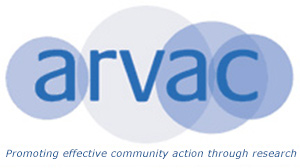Working with universities
If you would like to develop links with a university it is best to invest some time in building a relationship with a specific academic or department with interests in your area of work. University research is assessed for quality using the Research Excellence Framework (REF). One criterion is that research should have impact beyond academia – have some sort of relevance in the wider community. Bear this in mind when approaching a university.
Step 1 Go to the website of your chosen university and look up the departments most relevant to your work, e.g. health. Look at the profiles of the academic staff and find out their research interests.
Step 2 Go to the REF website and look up the case studies Find examples of the sort of research you are interested in, note how they are using language and think about how working with your organisation could help the university demonstrate impact
Step 3 Approach the person you have identified in the university explaining how working with your organisation could help them to achieve better ratings in their REF impact, using some examples from the case studies.
If your researcher is a student, make sure that both they and their academic supervisor (or supervisors – there could be more than one) understand what you are trying to achieve through the research. The immediate output for the student will probably be an academic document as they will most likely be writing a dissertation or a thesis. But you should insist that in return for helping them with the research, you also get a short and accessible summary of the findings that you can use for your own purposes.
It is rare for academics or students to be able to commit to doing research work with an outside organisation on a short term basis, unless it is a personal commitment as a volunteer or as consultants, in which case they will charge a fee. But if you know you have research projects coming up, start the conversation as early as possible and be aware of what you could do for them as well as what you would like them to do for you.
Organisations funding academic research increasingly require universities to demonstrate the impact of their research in the wider community and how they are exchanging knowledge with the community.
The Economic and Social Research Council (ESRC) is a major funder of social research and defines impact in the following way on its website
What is impact?
We define research impact as ‘the demonstrable contribution that excellent research makes to society and the economy’. This can involve academic impact, economic and societal impact or both:
- Academic impact is the demonstrable contribution that excellent social and economic research makes in shifting understanding and advancing scientific, method, theory and application across and within disciplines
- Economic and societal impact is the demonstrable contribution that excellent social and economic research makes to society and the economy, and its benefits to individuals, organisations and/or nations.
The impact of research, be it academic, economic and social can include:
- Instrumental: influencing the development of policy, practice or service provision, shaping legislation, altering behaviour
- Conceptual: contributing to the understanding of policy issues, reframing debates
- Capacity building: through technical and personal skill development.
ESRC also offers tips on knowledge exchange and it can be helpful to understand what the universities might be doing in order to think about how you can assist in the process and build better relationships
The National Centre for Coordinating Public Engagement is another source of information to help you understand how universities are approaching this issue.
